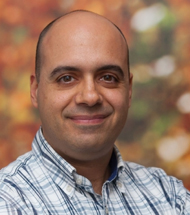A research on oral poetry to better understand the human mind.
"Language is acquired through generalizations about what has been heard," suggests a research of the ICS of the University of Navarra and the University of Niš (Serbia).

PHOTO: Manuel Castells
Studying oral poetry can help to better understand our mind: the interaction between habits and improvisation, the instructions of creativity and the keys to the acquisition and use of language. Cristóbal Pagán Cánovas, researcher of the Institute for Culture and Society of the University of Navarra, and Mihailo Antovic, Professor of Cognitive Linguistics at the University of Niš (Serbia), have developed this theory in their new book, Oral Poetics and Cognitive Science.
The volume, a pioneering contribution of oral poetics to the linguistic and cognitive programs of study , has been published by De Gruyter, one of the top ten academic publishers according to Scholarly Publishers Indicators.
The starting point for both researchers was a field study with Serbo-Croatian minstrels. According to the experts, these singers have maintained the oral tradition and the study of their poems and their way of learning them "brings us closer to the origins of verbal art and, moreover, of language itself," says Pagán.
Pagán and Antovic developed the field work in Serbia thanks to a scholarship Tandem fromhigh school of programs of study Advanced of the University of Fribourg (FRIAS) for the 2012-2013 academic year. In addition, they organized an international congress involving folklorists, homerists, linguists and cognitive scientists. "Itgave rise to the ideas of work interdisciplinary that have been published in this volume," explains Pagán.
